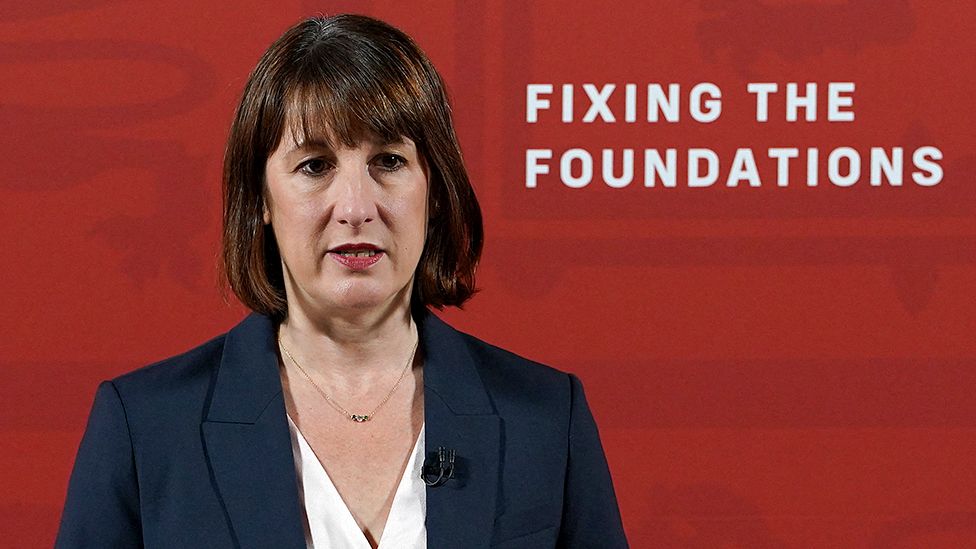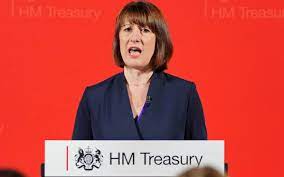
Rachel Reeves is proposing to raise taxes, slash expenditures, and go tough on benefits in the budget that will be presented in October. This comes in the midst of Treasury’s concern that the recent economic recovery has not been able to improve the already precarious situation of the public finances.
The chancellor is adamant that she will still have a significant black hole to plug, despite the fact that the first half of 2024 saw growth that was higher than anticipated. This is despite the fact that the most recent official set of borrowing numbers was released on Wednesday.
Reeves is concerned about the situation as a result of official data showing that borrowing was already running more than three billion pounds higher in the first three months of the fiscal year, from April to June, than what the independent Office for Budget Responsibility (OBR) had anticipated at the time of Jeremy Hunt’s March budget.
The previous month, she made the announcement that she would be eliminating winter fuel subsidies for the majority of seniors, abandoning plans for social care reform, and eliminating investments in roads, rail, and hospitals as the first stage of a plan to cut borrowing.
From this point forward, the Treasury has made it very apparent that additional difficult decisions will have to be made when Reeves presents the first Labour budget since 2010 on October 30.
According to a source, “We do not accept the positive economic inheritance line, given the decade that came before it. However, regardless of this, there is nothing in the most recent data that can offset the magnitude of the black hole in public finances that we are looking at.”
In the first budget that follows an election, new chancellors typically try to get bad news out of the way. This is because it is at this time that they have the opportunity to attempt to blame their predecessors for any decisions that they make that are unpopular.

Although Reeves will be receiving the initial assessment of the status of the economy from the Office of Budget Responsibility (OBR) at the beginning of the next month, she is of the opinion that there is no evidence to suggest that the government’s fundamental financial position is improving.
It has been stated by the International Monetary Fund that in order to alleviate the strains that are being placed on the public finances as a result of an ageing population and the transition to a zero-carbon economy, the United Kingdom will require an increase in its growth rate of one percentage point.
Among the modifications that Reeves is rumoured to be contemplating are the following:
Increasing revenue through the collection of taxes on inheritances and capital gains.
In spite of the fact that it would result in budget cuts for several Whitehall departments, the plans for a one percent increase in public spending are being sustained.
We are rebuffing the urge to eliminate the benefit cap for two children.
modifying the method of calculating debt so that it does not include the Bank of England.
Before the election, Reeves stated that she would inherit the worst public finances of any chancellor since the Second World War. After she arrived at the Treasury, she stated that the position was even worse than she had feared it would be.

At the same time as she proposed an initial savings of £5.5 billion to address a projected expenditure of £22 billion by Whitehall departments, she accused the Conservatives of concealing the true status of the national finances.
The subsequent numbers, which showed that the economy of the United Kingdom expanded by 0.6% between April and June, prompted the anticipation that there would be a knock-on effect on the public finances, which might allow Reeves to lessen the pain in her October budget. In its evaluation of the October budget, the Office of Budget Responsibility (OBR) is anticipated to revise its initial growth prediction of 0.8% for the entire year.
However, the Treasury pointed out that a better than predicted rebound in the first half of 2024, when the United Kingdom’s economy was growing at the quickest rate among the G7, had only made up for the bad patch that occurred in the second half of 2023, when the economy contracted for two quarters and was legally in recession.
According to data that was released by the Office of National Statistics (ONS) within the last month, the amount of money that was borrowed during the first three months of the fiscal year 2024–25 was £49.8 billion. This figure is £3.2 billion higher than what the OBR had projected.
Between April and June, the government spent a total of £297.3 billion, which is £4.6 billion more than it spent during the same time period the previous year. This increase can be partially attributed to the influence that inflation has had on departmental spending and benefits.
The statistics for borrowing are frequently revised downward as new data is received; however, the Treasury reports that borrowing is on track to surpass the Office of Budget Responsibility’s forecast of £87 billion for the entire fiscal year 2024–25. After March, the Office of Budget Responsibility (OBR) stated that the United Kingdom will only just about fulfil the requirement that after five years, the state’s debt should be decreasing as a percentage of the national revenue.
The Conservatives have made an equal effort to denigrate Reeves’ assessment of the economy, alleging that the incoming government is attempting to find political cover for tax increases that have already been scheduled for the budget. Labour has attempted to emphasise the terrible status of the public finances, while the Conservatives have made another attempt to disparage Reeves’ assessment.
Hunt, the shadow chancellor, stated that the growth data that were released last week were “further proof that Labour have inherited a growing and resilient economy.” These figures indicated that the economy was growing faster than predicted.
In addition, he stated that the attempt made by the chancellor to attribute her economic inheritance to her choice to raise taxes—tax increases that she had always intended—will not be well received by the general public.
As one of the candidates to succeed Rishi Sunak as the head of the Conservative Party, James Cleverly stated that the economic inheritance that Labour had received was significantly different from what ministers initially portrayed it to be. He made the following statement: “The economy is growing, unemployment is down, and inflation is under control.”